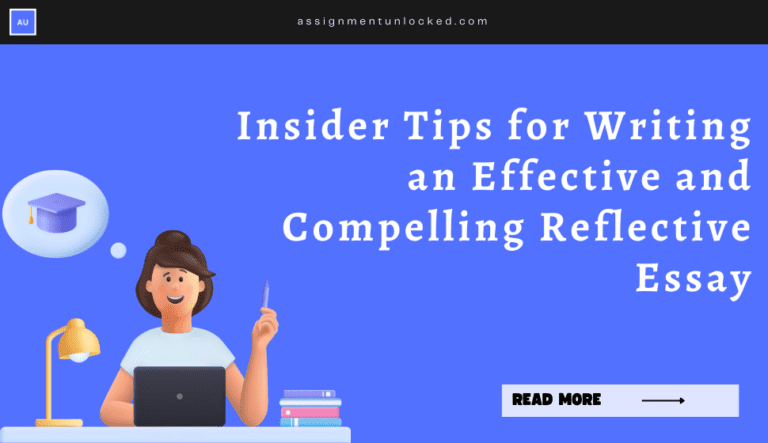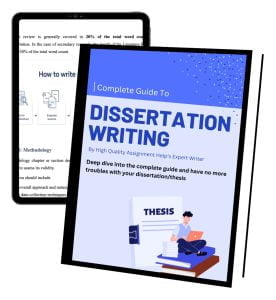A reflective essay can be a powerful tool for self-reflection and personal growth. It allows you to explore your experiences, analyze them, and draw meaningful insights. However, crafting a compelling reflective essay requires careful consideration of various elements. In this article, we will provide insider tips by the best essay writing services that will enhance your reflective essay writing skills and help you create an impactful piece of writing.
Introduction
The introduction of your reflective essay sets the tone for the entire piece. Start with a captivating hook that grabs the reader’s attention and introduces the topic. You can begin with a thought-provoking question, an engaging anecdote, or a relevant quote. Clearly state the purpose of your essay and provide a brief overview of the experiences you will reflect upon.
Understanding Reflective Essays
Before diving into writing, it’s crucial to understand what a reflective essay entails. Reflective essays require you to delve into your thoughts, feelings, and experiences related to a specific event or topic. They go beyond simple storytelling by encouraging critical thinking and introspection. Reflective essays provide a platform to explore the lessons learned, personal growth, and the significance of the experiences.
1.Definition and Purpose
Reflective essays are a form of academic writing that explores and evaluates personal experiences or events. The purpose is to delve into the thoughts, emotions, and lessons learned from the experience, offering insights and creating connections with the reader.
2.Key Elements of Reflective Essays
A reflective essay typically includes the following elements:
- Description: Provide a detailed account of the experience.
- Analysis: Reflect on the significance of the experience and its impact on personal growth.
- Evaluation: Assess the strengths and weaknesses of the experience and its outcomes.
- Conclusion: Summarize the main insights and lessons learned.
Choosing a Topic
1.Personal Experience
When selecting a topic for your reflective essay, choose a personal experience that holds significance for you. It could be an event that changed your perspective, a challenge you overcame, or a moment of personal growth.
2.Relevance and Significance
Ensure that the chosen topic is relevant and meaningful to your audience. Consider the broader themes or universal lessons that can be derived from your experience to make it relatable and engaging.
Structuring Your Essay
1.Introduction
Start your essay with a captivating introduction that grabs the reader’s attention. Use an anecdote, a thought-provoking question, or a captivating statement to draw them in.
2.Body
In the body paragraphs, please provide a detailed description of the experience and its context. Share your thoughts, emotions, and insights while maintaining a coherent flow. Use paragraphs to separate different aspects of the experience.
3.Conclusion
Conclude your essay by summarizing the key insights and lessons from the experience. Leave the reader with a lasting impression and encourage them to contemplate their experiences.
Writing Techniques
1.Use of Descriptive Language
Incorporate vivid and descriptive language to engage the reader’s senses and create a clear image of the experience. Use metaphors, similes, and sensory details to make your writing more engaging and memorable.
2.Incorporating Personal Insights
Share your insights and reflections throughout the essay. Explain how the experience impacted your perspective, values, or beliefs. Make connections between your experience and broader concepts or societal issues.
3.Reflection and Analysis
Go beyond mere description and engage in critical reflection and analysis. Explore the reasons behind your thoughts and emotions, and evaluate the outcomes of the experience. Offer a balanced assessment of the strengths and weaknesses.
Engaging the Reader
1.Captivating Introduction
Craft an introduction that hooks the reader from the beginning. Consider using a compelling quote, an intriguing question, or an attention-grabbing statement related to your experience.
2.Creating Emotional Connections
Appeal to the reader’s emotions by conveying the emotions you felt during the experience. Share vulnerable moments and genuine insights to create an emotional connection that resonates with the reader.
Proofreading and Editing
- Reviewing and Revising
After completing your essay:
- Take the time to review and revise it.
- Check for grammatical errors, sentence structure, and coherence.
- Ensure that your ideas flow smoothly from one paragraph to another.
- Checking for Coherence and Clarity
Ensure that your essay is coherent and maintains a logical flow. Each paragraph should contribute to the overall narrative and support your main ideas. Use transition words to create smooth transitions between paragraphs.
Conclusion
A compelling reflective essay requires introspection, thoughtful analysis, and engaging storytelling. By choosing a meaningful topic, structuring your essay effectively, and employing writing techniques that captivate the reader, you can create a reflective essay that leaves a lasting impact.
Following the insider tips in this article, you can enhance your writing skills and create a reflective essay or you can take help from assignment help experts that engages readers and leaves a lasting impact.
Tips for Writing an Effective Reflective Essay
- Start early to allow ample time for reflection and revision.
- Be honest and authentic in sharing your thoughts and experiences.
- Use descriptive language to engage the reader’s senses and emotions.
- Reflect deeply and critically analyze your experiences.
- Incorporate relevant theories, concepts, or scholarly references.
- Show growth and development throughout your reflection.
- Connect your reflections to broader societal or academic contexts.
- Use a mix of personal anecdotes, examples, and evidence to support your points.
- Seek feedback from others to gain different perspectives and insights.
- Revise and edit your essay meticulously to ensure clarity and coherence.
By following the insider tips in this article, you can enhance your best essay writing skills and create compelling writing.
Common Mistakes to Avoid
- External reflection without depth or analysis.
- Focusing solely on the positive aspects without acknowledging challenges or failures.
- Lack of coherence and structure in organizing your thoughts.
- Plagiarism or failure to cite sources properly.
- Use generalizations to provide specific examples or evidence.
- Refrain from neglecting the revision and editing process.
- Failure to engage the reader through vivid and compelling language.
- Lack of clarity or relevance in the reflections.
By avoiding these common mistakes, you can elevate the effectiveness of your assignments with essay writing help, making it a powerful medium for self-reflection and personal growth. Embrace the opportunity to share your unique insights and experiences, and let your reflective essay leave a lasting impact on your readers.
Conclusion
Writing a reflective essay can be a transformative and rewarding experience. By reflecting on your experiences, thoughts, and emotions, you better understand yourself and the world around you. Remember to choose the best essay writing services providers with Assignment Unlocked and add personal insights to make it compelling. Edit, proofread, and revise your essay to ensure it is polished and coherent. Now, go forth and write an effective and captivating reflective essay!





